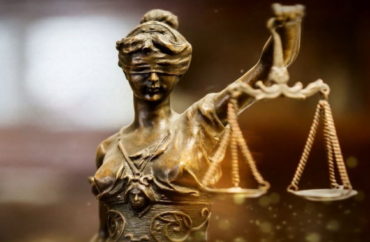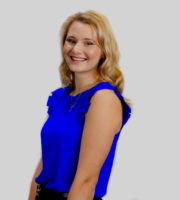
Two top legal scholars recently debated topic during Federalist Society event
Two prominent legal scholars recently debated whether mandatory diversity, equity and inclusion statements for hiring and promotion are constitutional and legal, and the answer to that is — depends on who you ask.
The jury is deadlocked, according to the debate, titled “Do University Diversity Statement Requirements Violate the Constitution” and hosted by the Federalist Society.
The two law professors who took opposite sides of the argument were UC Davis law Professor Brian Soucek and UCLA law Professor Eugene Volokh.
Soucek argued employers have the right to require DEI statements for hiring and promotion, a common practice in the University of California system, which is public and taxpayer-funded.
Critics contend mandatory statements unconstitutionally enforce viewpoint discrimination, violate academic freedom, and create a political litmus test.
Soucek earlier this year wrote a piece in the UC Davis Law Review that guides universities “on how they can require and evaluate diversity statements — should they want to — without violating either the Constitution or the academic freedom on which their mission depends.”
Soucek argued public universities can — and do — already engage in legal viewpoint discrimination.
“I engage in viewpoint discrimination all the time when I tell my students they’re wrong … when I grade their exams. We have certain jobs at the university that surely somebody’s political viewpoints … is relevant. The Reproductive Rights Institute [at UCLA] surely is taking past work into that area into account just like my asylum clinic is.”
With regard to academic freedom, he argued “judgments about what constitutes academic scholarly pedagogical excellence within a field are to be made by one’s peers, not by the board of trustees, not by the regents, not by the legislature, not by pundits.”
Essentially DEI statements are part of the peer evaluation process. Scholars select appointments, vote on tenure, and determine what counts as a contribution to DEI within particular fields.
“DEI statements are very little different than the teaching statements we would file, then the research statements we file, anything else we include as part of our application,” Soucek said.
In regard to the litmus test argument, Soucek said the best thing to do from a legal standpoint is to make sure they are not being used as “loyalty oaths.”
He said it’s a matter of asking about actions rather than beliefs.
“What that requires in my view is an instance that when you evaluate DEI statements, we are asking people to talk about, and then judging them on, their plans and past actions that promote diversity, equity and inclusion in their teaching, in their mentorship, in their research,” he said.
In contrast, Volokh argued the statements allow universities to discriminate based on viewpoint, especially because if faculty dissent from DEI, repercussions are felt during evaluations and promotions.
He likened DEI statements to a hypothetical situation in which professors would be required to show support for a war effort the university deemed valuable and just, and they must show proof they are “furthering the war effort.”
He said he acknowledges Soucek’s argument that because there is never any assurance rules will be implemented in a fair way doesn’t mean there should not be any rules, “but it may be a reason to be skeptical about some.”
He said DEI statements are “particularly well suited to viewpoint discrimination” as opposed to research statements of other academic requirements from scholars in hiring and promotion.
They “send a message that this is what we expect at the university, this is what you are going to have some explaining to do if you do express outside views on the subject,” Volokh said.
The Aug. 24 debate comes at a time when colleges and universities are increasingly requiring faculty to provide diversity, equity and inclusion statements, which has received a lot of pushback from scholars and professors who call them litmus tests for ideology.
“Within universities, faculty-wide resolutions for and against mandatory diversity statements have been called and academic freedom committees have been asked to intervene,” the Federalist Society stated on the event’s webpage. “Outside universities, lawyers are recruiting plaintiffs to challenge diversity statement requirements in court.”
MORE: Only 9 percent of law professors are conservative, study finds
IMAGE: Emory Law School YouTube screenshot





Please join the conversation about our stories on Facebook, Twitter, Instagram, Reddit, MeWe, Rumble, Gab, Minds and Gettr.